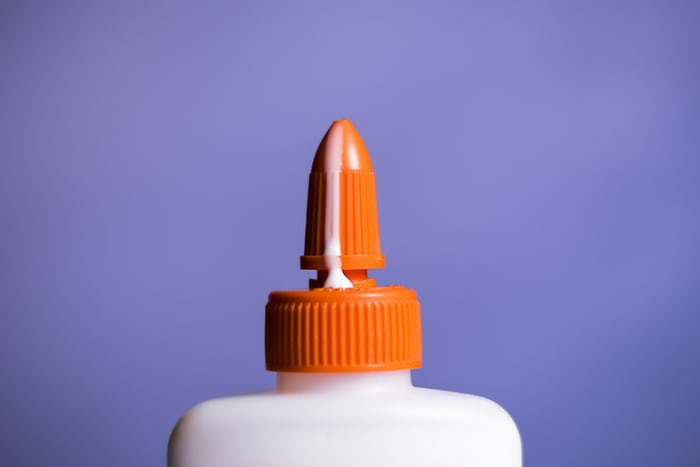Sex Education
PREMATURE EJACULATION: Symptoms, Causes, Treatment


Last Updated on April 1, 2024 by Joshua Isibor
WHAT IS PREMATURE EJACULATION?
Ejaculation is the release of semen from the penis during an orgasm. When ejaculation occurs faster than you or your partner would like, it’s known as premature ejaculation (PE).
PE is common. About one in three men between the ages of 18 and 59 experience PE at some point.
PE is also known as:
- rapid ejaculation
- premature climax
- early ejaculation
IS PREMATURE EJACULATION A TYPE OF SEXUAL DYSFUNCTION?
PE is considered a type of sexual dysfunction. Sexual dysfunction refers to any of several types of problems that keep a couple from fully enjoying sexual activity.
PE isn’t the same as erectile dysfunction (ED). ED is the inability to achieve and maintain an erection that allows for a satisfying sexual experience. However, you may experience PE along with ED.
WHAT ARE THE SYMPTOMS OF PREMATURE EJACULATION?
Occasional episodes of PE usually aren’t anything to worry about. You may need treatment if PE occurs frequently or has occurred for an extended period.
The main symptom of PE is the regular inability to delay ejaculation for more than a minute after penetration during intercourse. Rapid climax during masturbation may also be an issue for some people.
If you experience premature ejaculation sometimes and normal ejaculation other times, you may be diagnosed with natural variable premature ejaculation.
PE is usually categorized as lifelong or acquired.
Lifelong (primary) PE means you’ve had this experience always or almost always since your first sexual experience.
Acquired (secondary) PE means you’ve had longer-lasting ejaculations in your life, but have developed PE.
WHAT CAUSES PREMATURE EJACULATION?
There are psychological or emotional components to PE, but there are also other factors that contribute to it.
Some psychological components may be temporary. For example, a person may have experienced PE during early sexual experiences, but as they grew older and had more sexual encounters, they learned strategies to help delay ejaculation.
Likewise, PE may become an issue as a person gets older and has more trouble maintaining an erection.
PE may be caused by underlying conditions or mental health concerns too, including:
- poor body image or poor self-esteem
- depression
- history of sexual abuse, either as the perpetrator or as the victim or survivor
Guilt may also cause you to rush through sexual encounters, which can lead to PE.
Other things that can lead to PE include:
- worrying about ejaculating too early
- anxiety about limited sexual experience
- problems or dissatisfaction in your current relationship
- stress
Physical causes can also play a major role in PE. If you have difficulty maintaining an erection because of ED, you may rush through intercourse so that you complete it before losing the erection.
Abnormal levels of certain hormones, such as testosterone, or chemicals produced by nerve cells called neurotransmitters may contribute to PE. Inflammation of the prostate or urethra can also cause numerous symptoms, including PE and ED.
WHEN TO SEEK HELP
Talk with a doctor if PE:
- is occurring or has occurred enough times to cause relationship problems
- makes you feel self-conscious
- keeps you from pursuing intimate relationships
You may start with a primary care physician or seek out a urologist. A urologist is a doctor who specializes in the health of the urinary system and male sexual function.
When you see your doctor, have the following information available:
- How long have you been sexually active?
- When did PE become a concern?
- How often does PE occur?
- How long does it usually take before you ejaculate during intercourse and when you masturbate?
- Do you use drugs or medications that may affect sexual performance?
- Have you had sexual encounters that included “normal” ejaculation? If so, what was different about those experiences and the times when PE was an issue?
In addition to working with a urologist or other physician, you may be advised to work with a mental health professional who specializes in sexual dysfunction.
You can always seek counseling from us just fill the form here.
“However, you may experience PE along with ED. For options you can try Intracavernous Pharmacotherapy for ED to help with your medical sexual issues.”
HOW TO TREAT PREMATURE EJACULATION
In some cases, you may be able to treat PE with some changes to your sexual routine.
You may be advised to masturbate an hour or so before intercourse, as this may help you delay ejaculation with your partner.
You may also try temporarily avoiding intercourse altogether and engaging in other sexual activities and play with your partner. That may help relieve the pressure of performing during intercourse.
Start-and-stop and squeeze methods
Two strategies you and your partner can employ are the start-and-stop method and the squeeze method.
With start-and-stop, your partner stimulates your penis until you’re close to ejaculation. Then your partner should stop until you feel you’re in control again.
Ask your partner to repeat this two more times. Then engage in a fourth attempt, allowing yourself to ejaculate.
The American Urological Association recommends trying this three times a week until you feel you’re better able to control when you ejaculate.
With the squeeze method, your partner stimulates your penis until you’re close to ejaculating. Then your partner firmly squeezes your penis until your erection starts to weaken. This should help you better realize the sensation just before climaxing so you can develop better control and be able to delay ejaculation.
These strategies could take several weeks to become effective, and there is no guarantee that they alone solve the issue.
You can also try the 👉 Pelvic floor exercises
Certain muscle exercises may also help. In particular, you may benefit from male pelvic floor exercises.
To find your pelvic floor muscles, concentrate on stopping urination in midstream or using certain muscles to keep you from passing gas. Once you understand where the muscles are, you can practice exercises known as Kegel maneuvers. You can do them standing, sitting, or lying down.
To do Kegel maneuvers:
- Tighten your pelvic floor muscles for a count of three.
- Relax them for a count of three.
- Do this several times in a row throughout the day
Work your way up to three sets of 10 repetitions each day.
When doing Kegel exercises, be careful not to use your abdominal or buttock muscles instead of your pelvic floor muscles.
Training your muscles may also take weeks or months to make a difference, depending on whether this is at the root of your PE.
Decreased sensitivity
Decreasing the sensitivity of your penis during intercourse may also help.
Wearing a condom may decrease your sensitivity just enough to help you maintain your erection longer without ejaculating.
There are even condoms marketed for “climax control.” These condoms contain numbing medications such as benzocaine to help dull the nerve responses of your penis slightly.
Applying numbing agents directly to your penis about 15 minutes before intercourse may also be helpful, but discuss your options with your doctor first.
ED Medications
If ED is a contributing factor, talk with your doctor about ED medications, such as tadalafil (Cialis) and sildenafil (Viagra). They may help you maintain an erection, which could lead to delayed ejaculation.
These and other ED medications can sometimes take an hour to begin working. Getting the right dose may take some trial and error too, so be willing to work with your prescribing healthcare professional.
Talking with your partner
If you experience PE, it’s important to talk about it with your partner, rather than ignore it or deny that it exists. Be calm and discuss your options.
Both of you should understand that:
- PE is usually a treatable condition.
- It’s very common.
- Exploring the causes and treatments for PE may help resolve other relationship issues or lead to treatment for anxiety, depression, or other mood disorders, as well as hormonal or other physical causes.
Ayurvedic herbal medicine
Ayurveda is India’s traditional healing system. It relies on thousands of herbs to treat everything from diabetes to inflammation.
Certain Ayurvedic medicines, such as kaunch beej, kamini vidrawan ras, and yauvanamrit vati, are thought to treat premature ejaculation when taken in capsule form twice daily with lukewarm water. Ayurvedic medicine has also been used to treat erectile dysfunction.
A 2017 Sexual Medicine study found that men who used Ayurvedic medicine saw a slight, but significant, increase in the time it took to ejaculate during sex. Known potential side effects include:
- stomach pain
- dizziness
- mild pain
- decreased libido
Chinese herbal medicine
A weekly or daily dose of Chinese herbal medicine — in particular, Yimusake tablets or Qilin pills — may treat premature ejaculation by boosting sexual stamina and improving energy.
That same Sexual Medicine study found that different types of Chinese herbal medicine can increase ejaculation time by about two minutes. Known potential side effects include:
- stomach pain
- dizziness
- mild pain
- decreased libido
Topical creams
Over-the-counter topical anesthetic creams contain a numbing agent that can treat premature ejaculation by reducing sensation and delaying climax. Apply the cream to your penis 10 to 15 minutes before sex in order for it to be most effective.
The 2017 Sexual Medicine study found that topical creams can help increase the time it took to ejaculate by a few minutes. Although generally well-tolerated, anesthetic creams can cause:
- mild pain
- mild burning sensation
- decreased libido
- a temporary loss of sensitivity
Lidocaine spray
Like topical creams, lidocaine spray can help treat premature ejaculation by desensitizing the penis and decreasing hypersensitivity. Use the spray 10 to 15 minutes before sex in order for it to work best. Known potential side effects include lowered libido and temporary sensitivity loss.
REMEMBER ALL THESE REMEDIES HAVE SIDE EFFECTS
Zinc supplements
Zinc not only supports healthy immunity and cell growth, but the essential mineral also helps produce testosterone as well as boost your libido and energy. Research has found a link trusted Source between zinc deficiency and sexual dysfunction in men, so taking 11 milligrams of zinc per day — the recommended amount — may improve ejaculation time.
A 2009 study conducted on rats showed that zinc supplements can increase testosterone, which may improve sexual problems, such as premature ejaculation. Taking too much zinc, though, may cause:
- nausea
- vomiting
- diarrhea
- kidney and stomach damage
- a metallic taste in your mouth
Dietary changes
In addition to zinc, magnesium also plays a role in your sexual health and can play a role in premature ejaculationTrusted Source, according to research. Incorporating foods into your diet that are rich in zinc and magnesium may help increase the time it takes you to climax. Those foods include:
- oysters
- pumpkin seeds
- soybeans
- yogurt
- spinach
- wheat germ cereal
- almonds
- kidney beans
- chickpeas
- sesame seeds
- beef and lamb
- dark chocolate
- garlic
- peas
Pause-squeeze technique
The pause-squeeze technique may help treat premature ejaculation by letting arousal dwindle before the climax. When you feel you’re ready to ejaculate, stop, and have your partner squeeze the end of your penis where the head joins the shaft. Have them hold the squeeze for several seconds until you no longer want to climax. Repeat this process as much as necessary. Eventually, you may be able to delay ejaculation without help.
Stop-start technique
The stop-start technique, also known as orgasm control or “edging,” can help delay climax by drawing out pleasure. When you feel the urge to ejaculate, stop having sexual activity completely. Once you feel less aroused, slowly start to have sexual activity again. Repeat this process as much as necessary to help you control ejaculation.
Climax control’ condoms
Condoms, in general, may decrease sensitivity and keep you from ejaculating early. But there are also climax control condoms available over-the-counter that are either made of a thicker latex material or contain a numbing agent that’s meant to delay climax.
Masturbation
Masturbating an hour or two before you have sexual activity may help delay ejaculation during penetration. This sexual release should reduce your need to climax quickly.
Avoid sex for some time
This may seem counterintuitive, but focusing on other types of sexual activity instead of intercourse may help take the pressure off from your sexual encounters. Penetration isn’t the only way to reach sexual satisfaction, so think about other ways you and your partner can feel the pleasure that won’t cause either of you distress or frustration.
Premature ejaculation is a completely normal and common type of sexual complaint that affects up to 40 percent of men in the United States. Any of these home remedies and natural treatments can help you manage your symptoms. But if premature ejaculation persists, you should see your doctor to rule out any underlying causes and explore other treatment options.
THANK YOUUUUUUUUUUUUUU 😘
CLICK HERE TO READ: HOW TO KISS A BOY FOR THE FIRST TIME
Originally posted 2020-07-30 07:16:17.


-



 Text Messages2 months ago
Text Messages2 months agoBEST LOVE CONFESSION MESSAGES FOR HER OR HIM
-



 Sex Education3 years ago
Sex Education3 years ago10 Simple Hack to Make a Girl Send Her Nudes
-



 Text Messages2 months ago
Text Messages2 months agoHeart Touching RIP Uncle Quotes
-



 Text Messages2 months ago
Text Messages2 months agoBest Good Luck Wishes Before and After Surgery, for Family and Friends
-



 Text Messages2 months ago
Text Messages2 months agoFreaky and Dirty Paragraphs For Him Copy And Paste Yahoo
-



 Uncategorized3 years ago
Uncategorized3 years agoHOW TO FALL IN LOVE WITH YOURSELF
-



 Uncategorized4 weeks ago
Uncategorized4 weeks agoHOW TO KISS A BOY FOR THE FIRST TIME
-



 lifehacks2 years ago
lifehacks2 years agoWhat are Waist Beads? -10 Reasons Why Women Wear Waist Beads